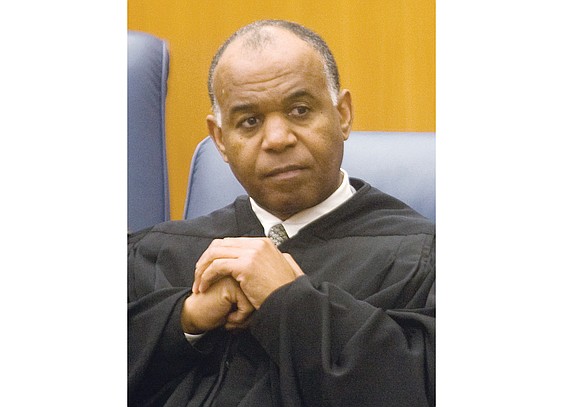Federal court blocks Trump’s travel ban
Free Press wire reports | 6/2/2017, 10:17 p.m.
The fate of President Trump’s order to ban travelers from six predominantly Muslim nations, blocked by federal courts, soon may be in the hands of the conservative-majority U.S. Supreme Court, where the president’s appointee, Justice Neil Gorsuch, could help settle the matter.
After the Richmond-based 4th U.S. Circuit Court of Appeals declined May 25 to lift a Maryland federal judge’s injunction halting the temporary ban ordered by President Trump on March 6, U.S. Attorney General Jeff Sessions said the administration would appeal to the nation’s highest court.
A second regional federal appeals court heard arguments on May 15 in Seattle in the administration’s appeal of a decision by a federal judge in Hawaii also to block the ban. A ruling by the 9th U.S. Circuit Court of Appeals is pending.
The U.S. Justice Department has not made clear when the administration would make its formal appeal or whether it would wait for the 9th Circuit Court’s ruling before appealing.
If the U.S. Supreme Court take it up, the justices would be called upon to decide whether courts should always defer to the president over allowing certain people to enter the country, especially when national security is the stated reason for an action, as in this case.
The justices also would have to decide if President Trump’s order violated the U.S. Constitution’s bar against the government favoring one religion over another, as the ban’s challengers assert.
Chief Judge Roger L. Gregory, who grew up in Petersburg and graduated from Virginia State University and the University of Michigan Law School, wrote the 4th Circuit Court’s stinging rebuke of the president’s travel ban.
The 10-3 ruling called the travel ban discriminatory, saying it uses “vague words of national security, but in context drips with religious intolerance, animus and discrimination.”
Judge Gregory cited statements by President Trump during the 2016 presidential election calling for “a total and complete shutdown of Muslims entering the United States.” He wrote that a reasonable observer likely would conclude the order’s “primary purpose is to exclude persons from the United States on the basis of their religious beliefs.”
The government had argued that the court should not take into account President Trump’s campaign comments because they occurred before he took office in January. But the appeals court rejected that view, saying the president’s campaign remarks provide a window into the motivations for his actions in government.
The appeals court also questioned a government argument that the president has wide authority to halt the entry of people into the United States.
“Congress granted the president broad power to deny entry to aliens, but that power is not absolute. It cannot go unchecked when, as here, the president wields it through an executive edict that stands to cause irreparable harm to individuals across this nation,” the majority opinion said.
“This to us is a complete win and overwhelming in terms of the votes,” said Omar Jadwat, director of the American Civil Liberties Union Immigrants’ Rights Project, who argued the case in the 4th Circuit.
The dissenting judges said the executive order was constitutional and a valid exercise of presidential authority, and that President Trump’s campaign statements should not have come into play. The order itself “contains no reference to religion whatsoever,” Judge Paul Niemeyer wrote.
The White House also pointed to a dissent by Judge Dennis Shedd that said “the real losers in this case are the millions of individual Americans whose security is threatened on a daily basis by those who seek to do us harm.”
“These clearly are very dangerous times and we need every available tool at our disposal to prevent terrorists from entering the United States and committing acts of bloodshed and violence,” Michael Short, a White House spokesman, said in response to the ruling.
He added that the White House was confident the order ultimately would be upheld by the judiciary.
The Virginia-based appeals court was reviewing a March ruling by Maryland-based federal Judge Theodore Chuang that blocked part of President Trump’s March 6 executive order barring people from Iran, Libya, Somalia, Sudan, Syria and Yemen for 90 days while the government put in place stricter visa screening.
President Trump has lashed out at the judges and courts that have ruled against him, saying the 9th Circuit has a “terrible” record and calling its rulings on his policies “ridiculous.”
The March ban was President Trump’s second effort to implement travel restrictions through an executive order. The first, issued on Jan. 27, led to chaos and protests at airports before it was blocked by courts.
The second order was intended to overcome the legal issues posed by the original ban, but it was blocked by judges before it could go into effect on March 16.
In an opinion that concurred with the majority, Judge Stephanie Thacker wrote that the administration did nothing to distance itself from the first order, describing the revised ban as “the proverbial wolf in sheep’s clothing.”
Chief Judge Gregory was first installed on the appeals court in a recess appointment by Democratic President Bill Clinton and then nominated to the same post by GOP President George W. Bush.
Nine other judges appointed by Democrats agreed to block the travel ban, while three Republican-appointed judges dissented.
Two other 4th Circuit judges, both appointed by Republicans, recused themselves from the case.







